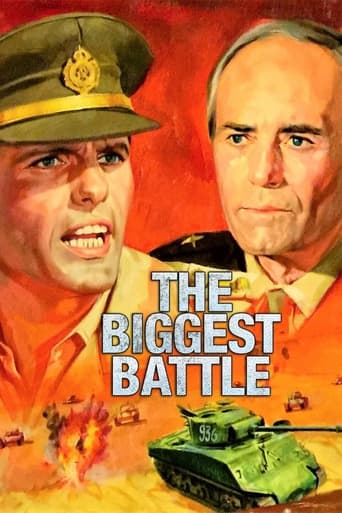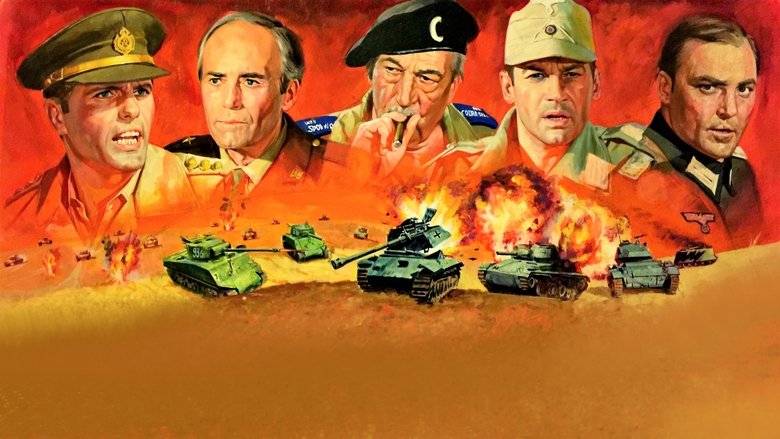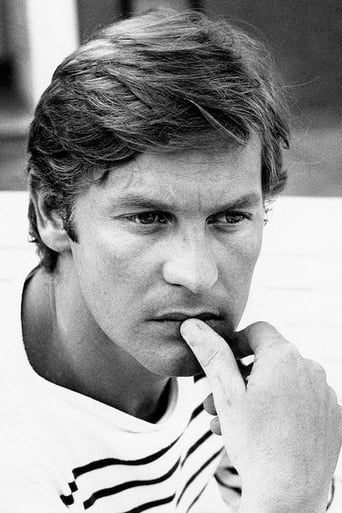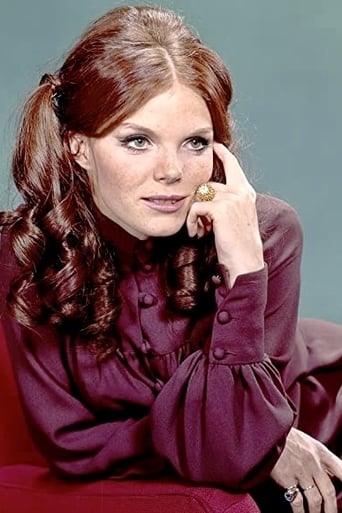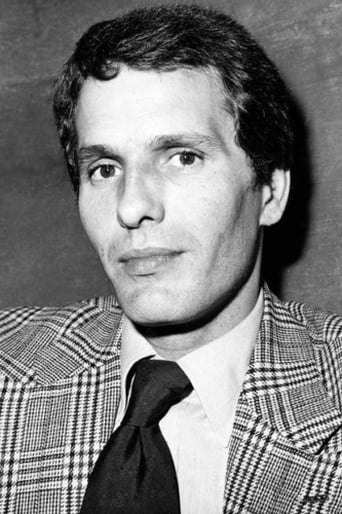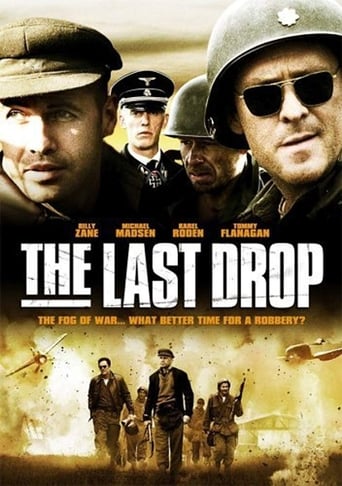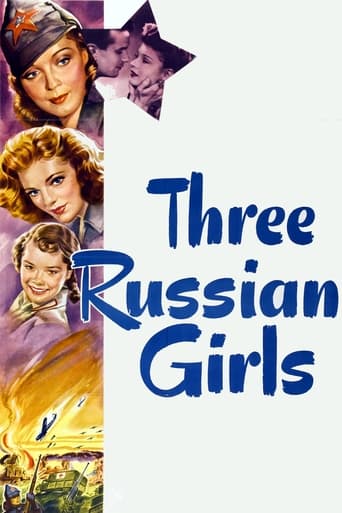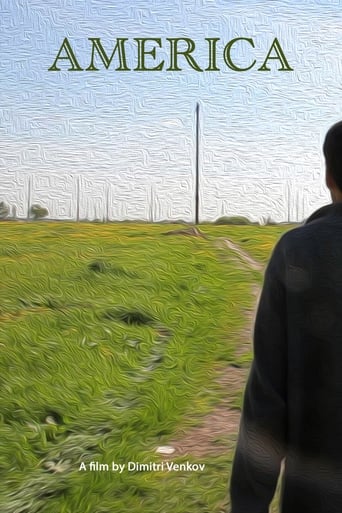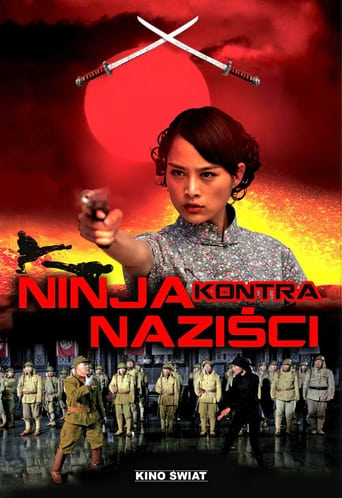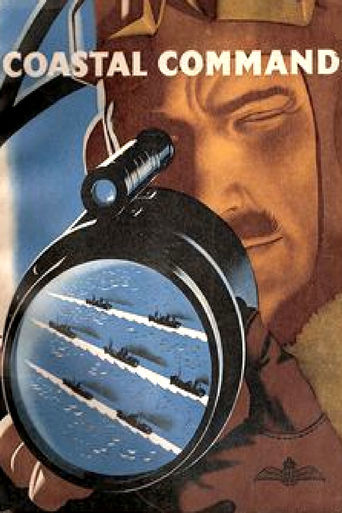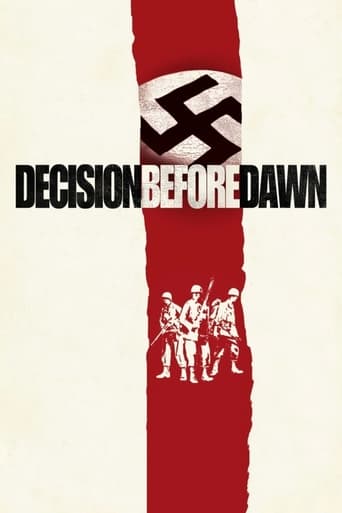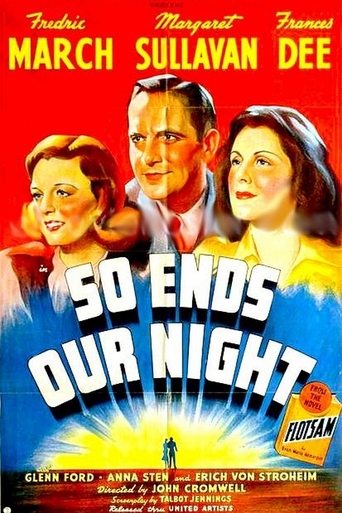The Biggest Battle (1978)
A story of how World War II affected the lives of a German family and an American family, both of whom had sons and fathers fighting in the war.
Watch Trailer
Cast
Similar titles
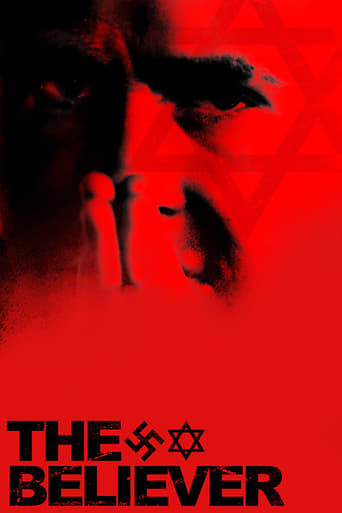
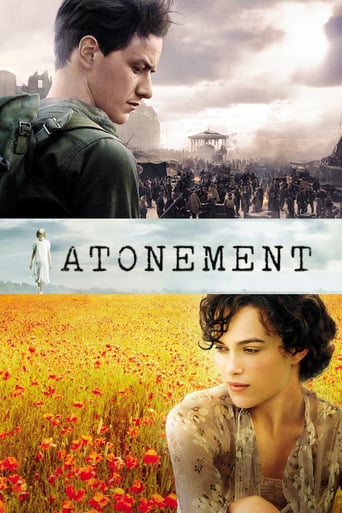
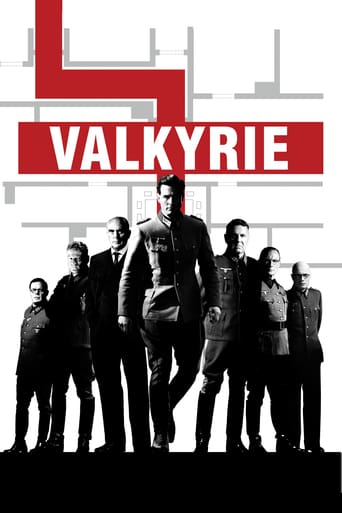
Reviews
Touches You
It’s fine. It's literally the definition of a fine movie. You’ve seen it before, you know every beat and outcome before the characters even do. Only question is how much escapism you’re looking for.
The plot isn't so bad, but the pace of storytelling is too slow which makes people bored. Certain moments are so obvious and unnecessary for the main plot. I would've fast-forwarded those moments if it was an online streaming. The ending looks like implying a sequel, not sure if this movie will get one
Very good movie overall, highly recommended. Most of the negative reviews don't have any merit and are all pollitically based. Give this movie a chance at least, and it might give you a different perspective.
The Biggest Battle (1978) * 1/2 (out of 4)Incredibly disappointing drama starts off in Germany during the 1936 Olympics where an American general (Henry Fonda), a German major (Stacy Keach), a Jewish actress (Samantha Eggar) and a war correspondent (John Huston) are having dinner and agreeing that Hitler will not cause a war. Flash forward to 1942 and war is happening and all sides of this dinner are now in the middle.THE BIGGEST BATTLE is an Italian and West German co-production that was meant to rival various American movies that took on the WWII subject. Of course something like MIDWAY was an obvious inspiration. The most interesting thing about this film is that it did have a bigger budget than you'd normally see in a film like this but the problem is that the budget wasn't big enough. It's clear that writer-director Umberto Lenzi wanted to make an epic war film and even got a terrific cast together but the film falls well short of that.There's no question that the biggest problem with this film is its screenplay. I never found any of these characters to be interesting and especially the Keach character. I found the character to be extremely bland but so was another subplot that deals with Fonda and his two sons going off to fight in the war. The "proud father" aspect just doesn't work. There's really nothing story wise that connects with the viewer and this incldues the action. There are a lot of action scenes but they just feel cheap and never contain any tension.With all of that being said, the most amazing thing about this picture is the fact that they got such a great cast. You've got Fonda, Keach, Huston and Eggar but there's also Helmut Berger, Edwige Fenech, Ray Lovelock and various other foreign actors. You've also got Orson Welles doing the narration in some versions but the version I watched didn't feature that. The story was confusing as it was so perhaps his narration was used to make more sense out of the film?THE BIGGEST BATTLE is a pretty poor film but the worst thing is the fact that it's really disappointing considering the cast.
Il grande attacco, also known in various versions under the English titles Battle Force and The Greatest Battle, is by consensus a muddled WW2 Action picture with some good battle scenes and a confused plot. It maybe that the film is a lazy effort on the part of its writers but it also, in its incoherence, manages to say something about war and history which is inexpressible through a more formally consistent narrative.A disparate group of people – an American general (Henry Fonda), an Irish-American war correspondent (John Huston), a German officer (Stacey Keach) and a famous German-Jewish actress (Samantha Eggar) meet in Berlin on the day that Jessie Owens wins an Olympic gold medal and the German chancellor, Adolf Hitler, refuses to shake the athlete's hand. The characters gossip casually about this and go their separate ways, with Fonda and Keach swapping souvenir Olympic medallions as a measure of their friendship. Six years later, these and a number of other characters are enmeshed in the second world war, the film consisting of various seemingly random sequences involving the characters in some kind of dramatic situation or undertaking a battle mission. Some of them are killed and some are still alive in 1943, where the film arbitrarily ends. But a coincidence means that the now dead Keach's medallion is in the hands of Fonda's American hero son (Ray Lovelock, of Living Dead at the Manchester Morgue 'fame').Taking the film at face value and allowing it not to conform to classical narrative structures, it seems that the arbitrary and the coincidental are the rules of the game here. There is no narrative arc or learning curve to most of the characters' lives; they are driven to undertake their roles in the war, through either loyalty to their homeland or to their professions, without even really coming to a consciousness of their situation. This is most striking in Keach's story: he marries Eggar and fights and dies, heroically, for the German side in Africa; at home, his wife is sexually harassed and persecuted by the Gestapo until she commits suicide. Keach dies without knowing that the ideology he has been fighting for has killed the woman he loves.Another sub-plot features Edwige Fenech as a French woman driven to prostituting herself to German officers by poverty. She isn't a bad person, she's eaten with self-loathing through her circumstance and is genuinely shocked when the Germans execute a Resistance fighter who has tried to hide in her apartment. Nevertheless, she herself is shot dead by the Resistance who are under the misguided impression that she was behind their compatriot's death. Her murder is quick and brutally achieved and her death doesn't teaches anyone anything. Life in war, for her and for most of the characters, is meaningless, degrading, dangerous and comes to a sudden end, as if life were a drive which simply stops when it meets an opposing, amoral force. Earlier in the film, Fenech has been helped by German officer Helmut Berger, here playing a character somewhat similar to Brando's in The Young Lions. Berger is fiercely loyal to Germany but doesn't seem ideologically Nazi nor does he seem to have lost his humanity – he looks seriously disturbed as he sees the death around him. Yet like Keach he never learns anything but how to die, which he (like an American soldier he'd previously shot) begs for. That Fonda's son doesn't kill Berger at the latter's request means nothing, as Berger croaks whilst drinking the water that Lovelock tries to force down his throat.There is a brief respite from the film's grimness at the end, as Fonda learns that Lovelock has survived thus far and been commended. Yet this is a bitter sweet given that this takes place after Fonda's visit to his other son's grave, who has been killed a few months before. More telling is the moment where Huston and a young cameraman are killed filming a battle – the camera is shown strewn in the sand, as if in a reflexive moment Il grande attacco realises and admits that the process of filming battles is futile.There's no point in arguing that this is a great film. There is something rather distasteful about its predominant concentration on the lives of the officer classes (Fenech's character is the only exception) and it may be that Il grande attacco really is not worthy of serious consideration. Yet its inconsistency and randomness adds up to a curiously consistent vision of war as a meaningless serious of events for those unlucky enough to be caught up in its history and unconscious enough not to comprehend their predicament. Director and co-writer Umberto Lenzi was, during the same period as this film was produced, producing some of the sleaziest and sickest of the giallo, crime and even cannibal films of the age; perhaps this is better understood as part of that movement in Italian cinema that produced films which deliberately undercut the meaning-making inherent in the Hollywood model, producing a provoking vision of a universe of cruelty, absurdity and violent death which shows that the world is more made up of swirling, futile vortices than character-building, consequential journeys.
I'm not a fan of war films to say the least and if I'm going to sit down and watch one, there generally has to be a real good reason for doing so. Despite the fact that Battle Force is a largely unknown and inconsequential war film from the late seventies; I actually did have several good reasons for seeing it. Anything directed by Umberto Lenzi is automatically worth watching considering all the great cult films he has delivered; from some of the best Giallo's to the very best of the Polizi genre, and adding to that is absolutely mouth-watering cast. However, in spite of those things; this is still a highly disappointing and really rather rubbish movie. The plot is rather confusing and doesn't make much sense and mainly focuses on two families of different nationalities during World War Two. However, we also focus on the actual war itself and various battles that the characters are involved in and this all gets mingled in with the stories of the families...The main problem with this film is that it tries to do too much and the one hundred minute running time is simply not long enough for it to do it all in (although I am thankful that the film didn't last for longer!). I don't really know how credible Umberto Lenzi was as a director in 1978 (probably more credible than he was in the eighties), but somehow he has managed to get his hands on a magnificent cast chequered with stars - and not just cult stars! Big names such as John Huston, Henry Fonda and Orson Welles have roles alongside cult stars such as Ray Lovelock, Samantha Eggar, Evelyn Stewart, Stacy Keach, Helmut Berger and Edwige Fenech (who really doesn't appear for long enough). This cast is all well and good but unfortunately it's wasted. The plot lacks any sort of direction and the film might actually have been better as an anthology style movie with a few different but focused stories. The war scenes look extremely cheap (the budget was probably spent on paying stars' wages) and that also brings the film down, although there is plenty of action. Overall, this did actually have the potential to be a masterpiece; but to say the least, it isn't! Recommended for its cult value only.
Italian producers Mino Loy and Luciano Martino shelled out a generous budget for this 1978 war epic commonly known as 'The Greatest Battle' but also stamped with alternative titles like 'Battle Force' and 'The Battle of the Mareth Line.' The film is an ambitious project that was clearly made for theaters worldwide, using higher-shelf locations, production values, and cast. Several crew members even used American aliases (including Martino as 'Louis Martin') to hide their unflattering résumés.'The Greatest Battle' was foolishly dropped into the hands of Umberto Lenzi, who co-produced, co-wrote, and directed this film under the pseudonym 'Humphrey Longan.' The Italian was no stranger to war movies, having drawn notice with 'Desert Commandos' and 'Battle of the Commandos' during the 1960s. By the late 70s, however, Lenzi's reputation was in decline after turning out a series of increasingly violent gialli and repugnant horror flicks. This production was a golden opportunity for Lenzi to revive his career, but he continued to ignore the most basic fundamentals of his craft and only widened his status as an exploitation hack.It is difficult to explain how 'The Greatest Battle' goes wrong because it fails on so many levels. The film models itself after box office smashes of its era like 'Midway' and 'Patton,' which integrate large-scale action with humanistic story lines. Unfortunately, 'The Greatest Battle' falls victim to bad writing, awful direction, and shod technical work. Lenzi's script, co-written by Cesare Frugoni, is a muddled effort to link friendships at the 1936 Olympic Games in Berlin with military happenings in North Africa during 1942 and '43. The concept had potential with such a talented cast and large budget, but it is all poorly executed, as if the filmmakers weren't sure of how to develop their ideas. To make matters worse, the vast action scenes filling most of The Greatest Battle's running time have a cheap look that spoils their effectiveness.'The Greatest Battle' starts just after the 1936 Olympic Games, when four internationally-linked people share a farewell dinner: U.S. Army general Foster (Henry Fonda), German major Mannfred Roland (Stacy Keach), British war correspondent Sean O'Hara (John Huston), and German, half-Jewish actress Annelise Ackermann (Samantha Eggar). Their conversation moves to the possibility of war in Europe, which they find unlikely. Little do they know, however, that Germany would invade Poland in 1939 and cause a series of events to forever interconnect them at the Mareth Line, a fortification system in Tunisia where the allied forces launched their offensive.Most of the film consists of allied battlefield efforts against Germany, with the main characters followed intermittently and Orson Welles supplying narration. Lenzi's obsession with action footage leads to an entire cast being wasted. The main characters give this film a human element, but they are only superficial glue to justify the carnage that follows. Henry Fonda spends most of his time sitting in a West Point office while donning his army uniform. Ray Lovelock, who gives a decent performance as General Foster's son, is heroic in battle and quickly becomes an aide to General Patton. John Huston brushes with the front lines as an over-the-hill war correspondent and recites a poem by John Donne. Stacy Keach leads his men reluctantly until he dies in combat. Samantha Eggar, who becomes Keach's wife, is pressed for information by the Gestapo and commits suicide. Helmut Berger enters the film as a devoted German lieutenant, besides Giuliano Gemma as a British army captain. Other names in the European film industry pop up, such as Edwige Fenech, Ida Galli, and Venantino Venantini. However, most of these subplots have no flow or rhythm, as if they were randomly stuffed into the main plot of North African battles.Better moments are in the action scenes, populated by tanks, jeeps, heavy artillery, and soldiers. These scenes (filmed in Spain) move quickly and use eye-opening sequences like German tanks chasing after British support vehicles and extreme close-ups of allied tanks plowing through enemy lines. Very little of the footage is stock, which Lenzi is known to use, and it maintains a frenetic pace. But even the action scenes have a cheap feel, since they are horrendously edited (by exploitation woodchopper Eugenio Alabiso) and sneak in plastic models running over miniature landscapes. Moving vehicles are seen jumping into freeze-frame before an explosion. Extras are seen bailing out twice during a given battle and angles seem to change indiscriminately, leaving the viewer unsure of which army he's looking at. While the action scenes have their strong points, there are other times when it's all a complete mess.Cinematographer Federico Zanni's visuals are decent, capturing a hot, gritty atmosphere. The score - paper-thin takes by Franco Micalizzi (as 'Frank Michaels') - is generic and not particularly impressive. Sound quality is poor and the dubbing of voices is often incoherent. Overall, 'The Greatest Battle' is a rotten entry that never comes close to its goal. It is little more than 'another' European war production with several qualified actors dragged along for the ride.Copies of 'The Greatest Battle' are hard to locate. A DVD with restored footage and widescreen presentation has been released in Germany, but it does not contain an English language option. English language tapes occasionally circulate on the Internet, including several that have been edited to pieces by U.S. distributors. The version used for this review was a 1997 VHS cassette from HBO Home Video, considered one of the 'better' editions despite its terrible pan and scan format. If anything, 'The Greatest Battle' would be nice to watch on the big screen, as certain footage doesn't present itself well on a television set. But I don't expect a 'Lenzi Festival' anytime soon, at least not in New York.* out of 4
